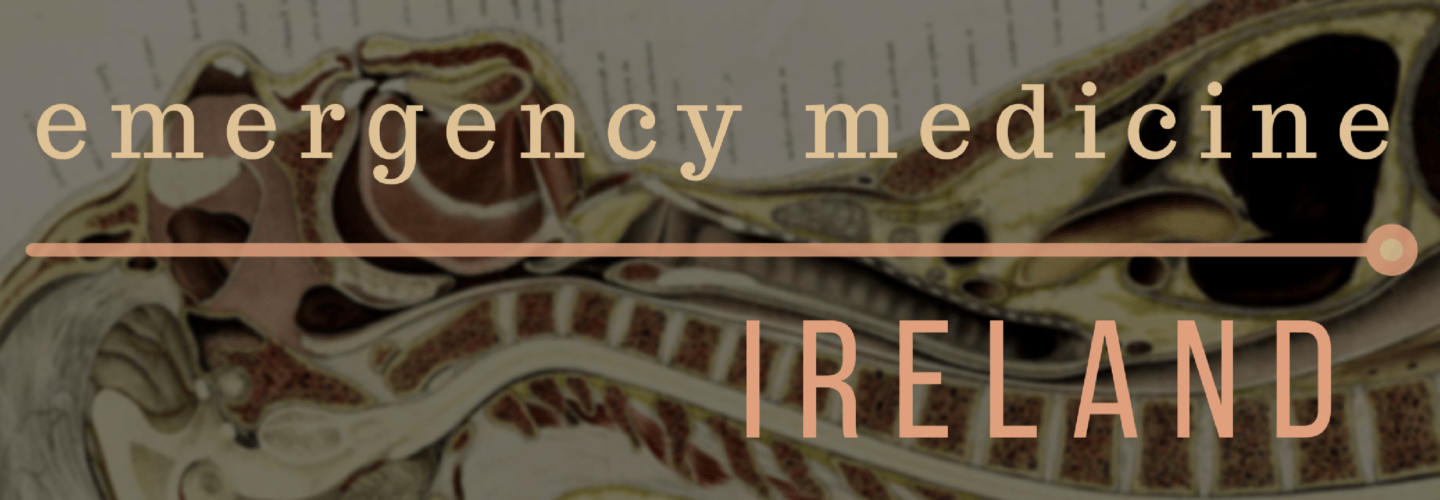Jacobs IG, Finn JC, Jelinek GA, Oxer HF, Thompson PL. Effect of adrenaline on survival in out-of-hospital cardiac arrest: A randomised double-blind placebo-controlled trial. Resuscitation 2011 Sep.;82(9):1138–1143. PMID 21745533
This paper got a lot of attention in the podcasting/blogging world but now I’ve read it I’m not sure what to make of it.
I really doubt we should be giving adrenaline in cardiac arrest (and I haven’t got round to listening to the SmartEM folks on this yet so that might change things…) but I expected this trial to confirm that and instead it leaves it an open question.
METHODS
- planned as a big 5000 person RCT in Western Australia (where the LITFL guys work) but because of difficulties getting others on board it ended up as a 500 person RCT. That must have big implications for the statistical powering of the trial and what we can say about it.
- Randomised standard ALS adrenaline v placebo
- placebo and blinded and all the rest
- Primary outcome was survival to hospital discharge
RESULTS
- 500 pts
- ROSC in the field was 23.5% vs 8.4% favouring adrenaline
- survival to hospital discharge was 4.0% vs 1.9% favouring adrenaline but this didn’t reach the magic p number
- if you work that out that means 16 survivors overall.
And that’s where the problem comes. When your primary outcome occurs that infrequently it’s hard to know whether it’s all by chance. It could be that adrenaline is entirely useless in cardiac arrest (which I suspect) but it could also be that adrenaline is really important – double the number of survivors… well…
I’m off to listen to the SMARTEM folks cover this, so I’ll likely have to retract most of it…

I think it’s a case of we feel that something should be done, so me must do something. I suspect there is probably a group of patients who have an increased probability of survival with reasonable outcome i.e those with otherwise healthy hearts who have suffered a sudden cardiac event, with limited other comorbidity, and a group (a likely much larger group) who were never really destined to survive in the first place. I suspect early defib, and good CPR are the key in the first group.
Good points Amit
The more interesting question is who not to resuscitate, or at least working out a way of not performing CPR on everyone. A whole can of worms I know…
I think we have a pretty good idea. It just isn’t that popular…
Ha! fair point!
“It isn’t that popular” – perhaps because we are complicit in perpetuating the idea that we can “save” everyone, as popularised by Baywatch CPR etc? But the interesting thing is that it probably IS popular, or at least accepted, among the medical community itself – we just need to have the balls to share this with our patients and their families when the time comes. So, I ask, is it that the public don’t like it, or is that we are rubbish at telling them properly? Check out this article if you haven’t already seen it: http://zocalopublicsquare.org/thepublicsquare/2011/11/30/how-doctors-die/read/nexus/
And an afterthought, people love stories, not statistics. There is no drama in “we gave people a drug, and it didn’t work for most of them, and they nearly all died, but they were almost certainly going to die anyway”
Totally agree. Medicine’s great as far as it goes. We’ve just not made it entirely clear how far it does go!
I think both the public and the medical profession are complicit in the idea that we can “save everyone”. Society wants a saviour and we’re more than willing to let them see us as such. And then we perpetuate the myth that we can save by trying to give them what they want.
I tend to pretty hard on our profession, I still think what we do really matters (CPR really matters sometimes!) , I just definitely see how we (as a medical profession) have helped perpetuate a few myths from time to time.
We’re very good at seeing the snake oil and lies of the homeopathists but not so good at noticing when we do the same thing ourselves.
The article is great isn’t it.
None other than Mel Herbert in an old EM:RAP episode once said – “you don’t change the death rate, it’s one per person”
what about doctor who or the highlander?
When your primary outcome occurs that infrequently it’s hard to know whether it’s all by chance
Interesting study but is 100% ethical?
Do you know how the research was conducted?
Do patients randomized to groups?
Regards
Hi marcus
This is pretty much the only randomised controlled trial in cardiac arrest. The ALS guidelines on it’s use aren’t really that evidence based
It’s pretty controversial whether or not it was ethical but that depends on whether or not you believe adrenaline is a proven life saving treatment. I agree with these authors that it’s as yet unproven and therefore justifies an RCT to prove it.
Unfortunately the study doesn’t give us a definitive answer.
Andy.